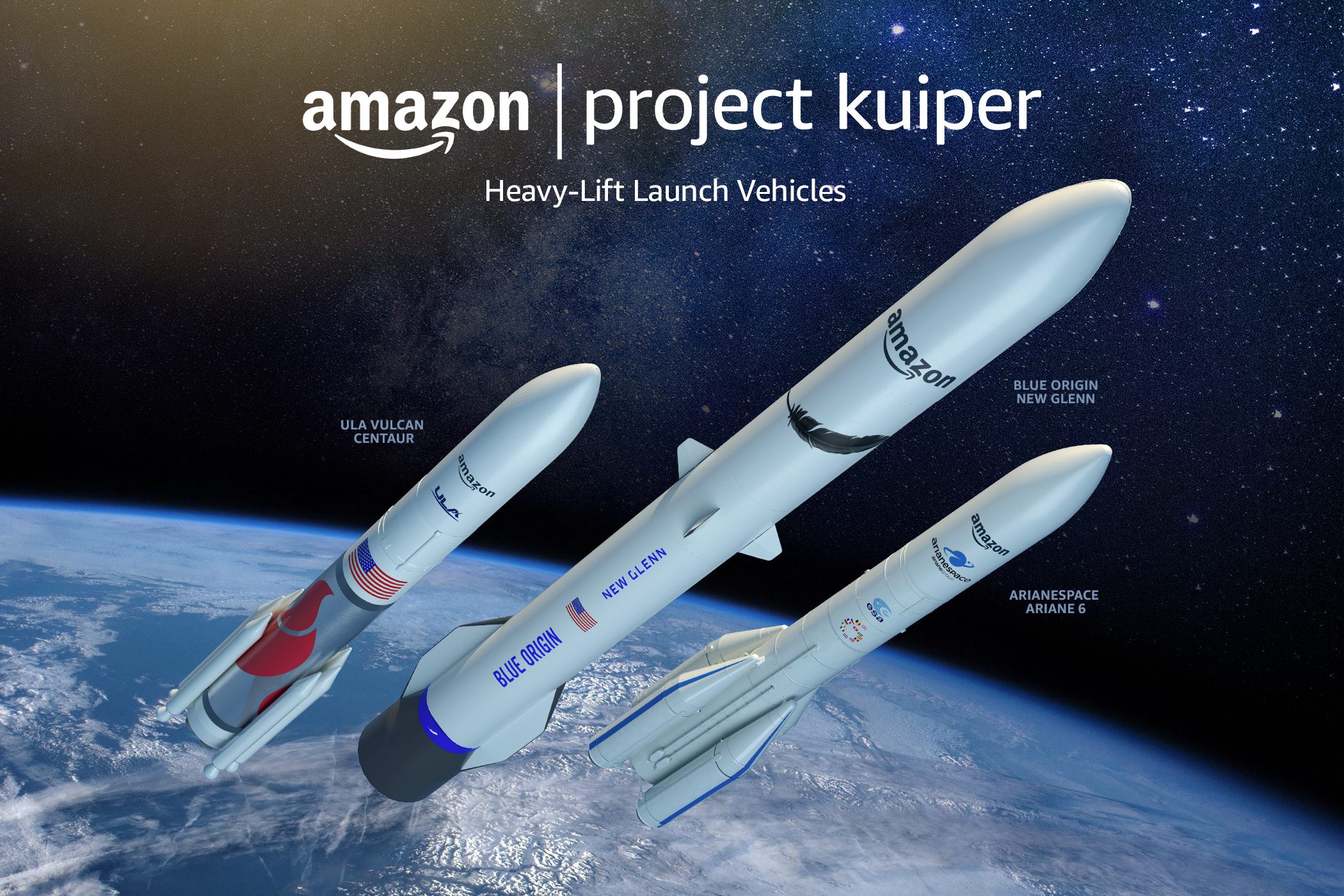IT’S NOT A SURPRISE!
Just recently, Amazon booked 83 space launches with some of the biggest space launch services. Arianespace, Blue Origin, and United Launch Alliance will convey Amazon’s Kuiper satellites into orbit over the course of the next 5 years.
Amazon’s Kuiper program is set to utilize over 2,200 satellites to provide broadband satellite internet access across the globe. As vice president of technology for Project Kuiper at Amazon Rajeev Badyal said in a statement on the program:
Securing launch capacity from multiple providers has been a key part of our strategy from day one. This approach reduces risk associated with launch vehicle stand-downs and supports competitive long-term pricing for Amazon, producing cost savings that we can pass on to our customers. These large, heavy-lift rockets also mean we can deploy more of our constellation with fewer launches, helping simplify our launch and deployment schedule. We’re excited to move one step closer to connecting residential, business, and government customers around the world.
Rajeev Badyal
You may have noticed one of the major players in the consumer space race has been left out, though: SpaceX. This isn’t much of a surprise, though, as SpaceX is owned by Elon Musk. Who also owns Starlink, which is doing the exact same thing. So it’s not much of a surprise, really. Or even news.
Honestly, the real people losing out here are astronomers. The International Astronomical Union (IAU) recently created the Centre for the Protection of Dark and Quiet Skies from Satellite Constellation Interference. The Centre’s purpose? To hopefully keep all of these satellite constellations from making the night sky difficult to impossible to observe.
Source: Gizmodo

